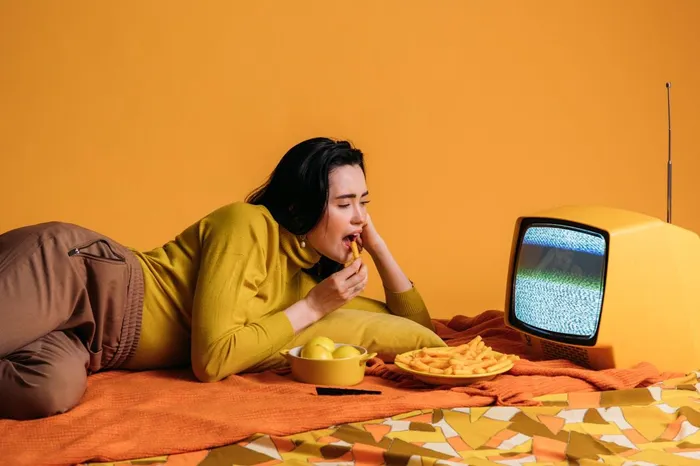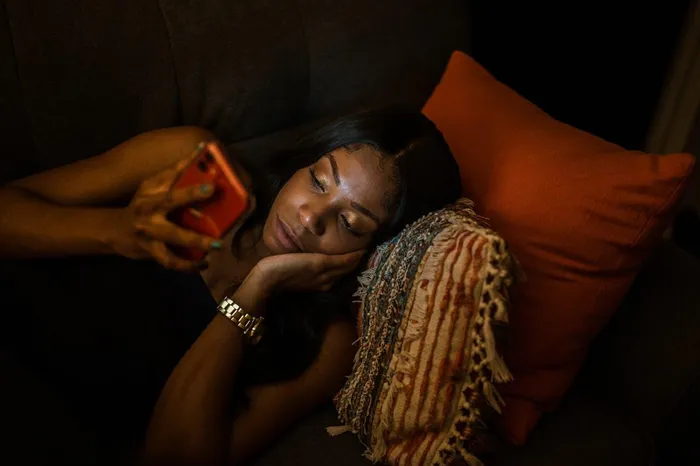Binge-watching or sleep-wrecking? How your favourite TV shows are sabotaging your sleep

If you’re struggling to fall or stay asleep, it might be time to trade your serial killer obsession for something a little softer.
Image: KoolShooters /pexels
We all love a good bedtime binge. A familiar show, a cosy blanket, and maybe something to sip on, it’s the perfect way to unwind, right?
Not quite, according to sleep experts and new research that shows our favourite late-night viewing choices might be stealing more than just our time.
They could be messing with our sleep in a big way.
Not all TV is created equal, at least not for sleep
A recent study from Premier Inn surveyed 2,000 Brits to find out how their TV habits affect their sleep. The results are eye-opening: the genre of show you choose before bed has a direct link to how well and how long you sleep.
It turns out that tuning into calming content like sports documentaries, kids' shows, and nature documentaries (think Planet Earth or Drive to Survive) can actually promote better rest. Nearly 7 out of 10 people who watched sports documentaries before bed rated their sleep as ‘very good’ or ‘fairly good’.
On the flip side? Fans of true crime, horror, and intense thrillers are sleeping significantly worse, with true crime topping the list of genres most associated with poor sleep.
“Our brains don’t just stop processing once the TV turns off,” explains Dr Lindsay Browning, a chartered psychologist and sleep expert. “What you watch before bed can leave your mind racing or even trigger stress responses, especially when it involves suspense, violence or real-life trauma.”
Shows that help you sleep better
If you’re struggling to fall or stay asleep, it might be time to trade your serial killer obsession for something a little softer. Based on Premier Inn’s findings, here are the genres most likely to support a restful night:
TV genres that had noticeably higher good sleep scores:
- Sports documentaries (Drive to Survive) 69%
- Kids & family shows (Bluey) 66%
- Legal drama (Suits) 65%
- Nature documentaries (Planet Earth) 62%
- Talk shows (Graham Norton) 62%
These shows often feature predictable pacing, low-stakes conflict or soothing visual elements that help the brain relax, rather than amp up.

Fans of true crime, horror, and intense thrillers are sleeping significantly worse, with true crime topping the list of genres most associated with poor sleep.
Image: RDNE Stock project
It might feel like the latest true crime doc or spooky thriller is just your guilty pleasure. But it could be costing you quality rest.
According to the study:
- 31% of true crime fans rated their sleep as “poor”
- 45% reported feeling tired at least four days a week
- Horror and crime dramas didn’t fare much better, with 30% and 29% of viewers respectively rating their sleep poorly
While gripping, shows like "Making a Murderer", "The Staircase", "Squid Game" and "Stranger Things" are loaded with suspense, fear and high cortisol triggers. And that’s not great news for your nervous system right before bed.
“Cortisol, our stress hormone, can spike while watching something intense, and it can take hours to return to normal levels,” says Dr Michael Breus, also known as "The Sleep Doctor". This disrupts our body’s natural ability to transition into sleep mode.”
Why screen time matters more than we think
This research isn’t just about what’s on the screen, but how much time we’re spending in front of it. According to the study, almost half of the participants watch TV for 3-4 hours each night a habit that’s becoming the norm in many households.
When you mix extended screen time with stimulating content, it’s a double hit to your sleep cycle. The blue light emitted by screens suppresses melatonin production (the hormone that helps you sleep), and intense emotional content keeps your mind wired long after the credits roll.
How to make TV work for you, not against you
The good news? You don’t have to give up TV altogether. Here are a few lifestyle tweaks that could help:
- Time it right: Cut off TV at least 30-60 minutes before bed to give your brain time to wind down.
- Choose sleep-positive genres: Opt for light-hearted, slow-paced or educational content.
- Dim the lights: Reduce screen brightness and room lighting in the evening to help your body recognise it’s bedtime.
- Set a viewing limit: Instead of binge-watching, cap your watching time at one or two episodes.
- Try audio alternatives: If TV is your go-to comfort, consider switching to a calm podcast or audiobook before bed.
The way we unwind matters more than we think.
In a world where “just one more episode” feels like self-care, it’s worth asking whether that final click is doing more harm than good.
Sleep is a non-negotiable and protecting it starts with what we choose to invite into our heads each night.
Related Topics: